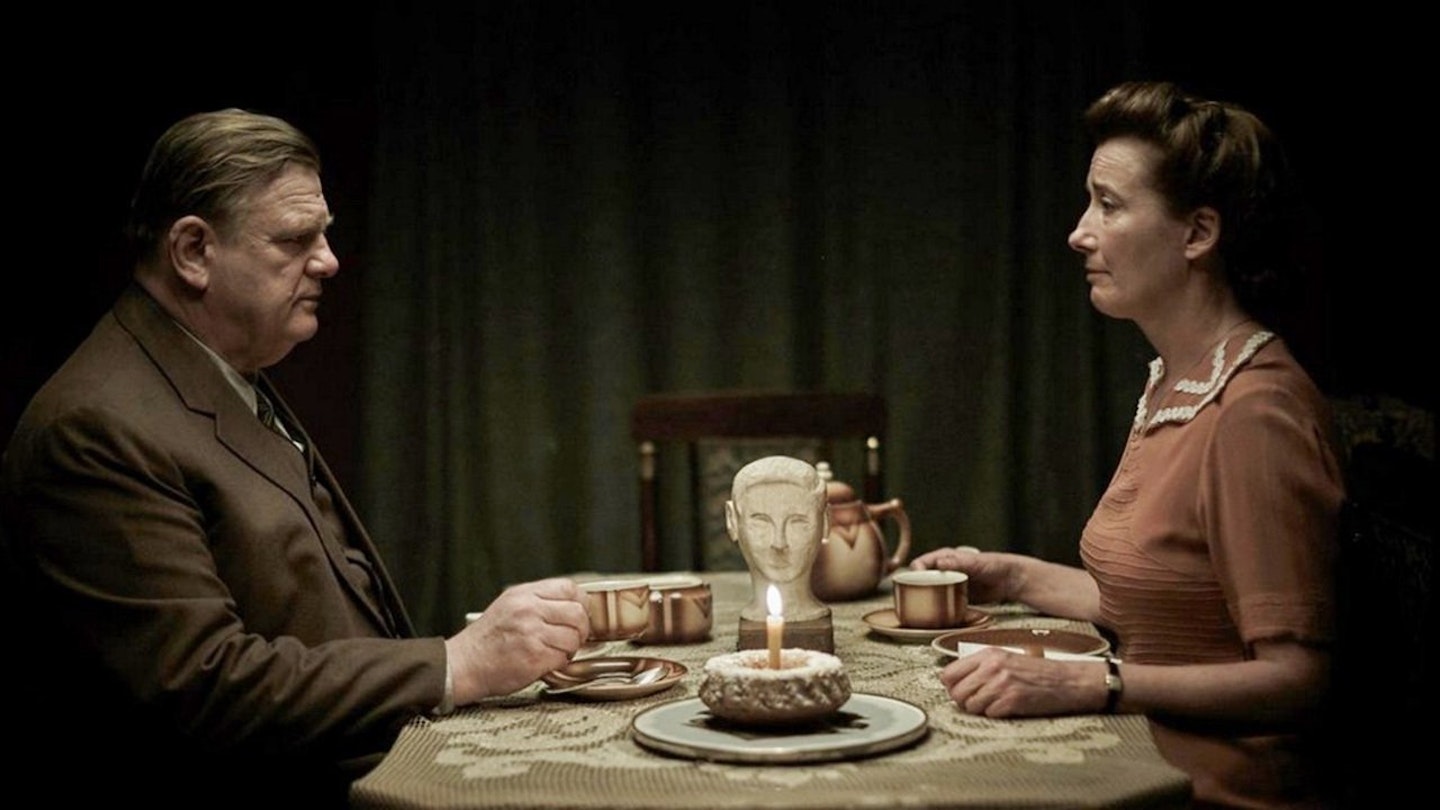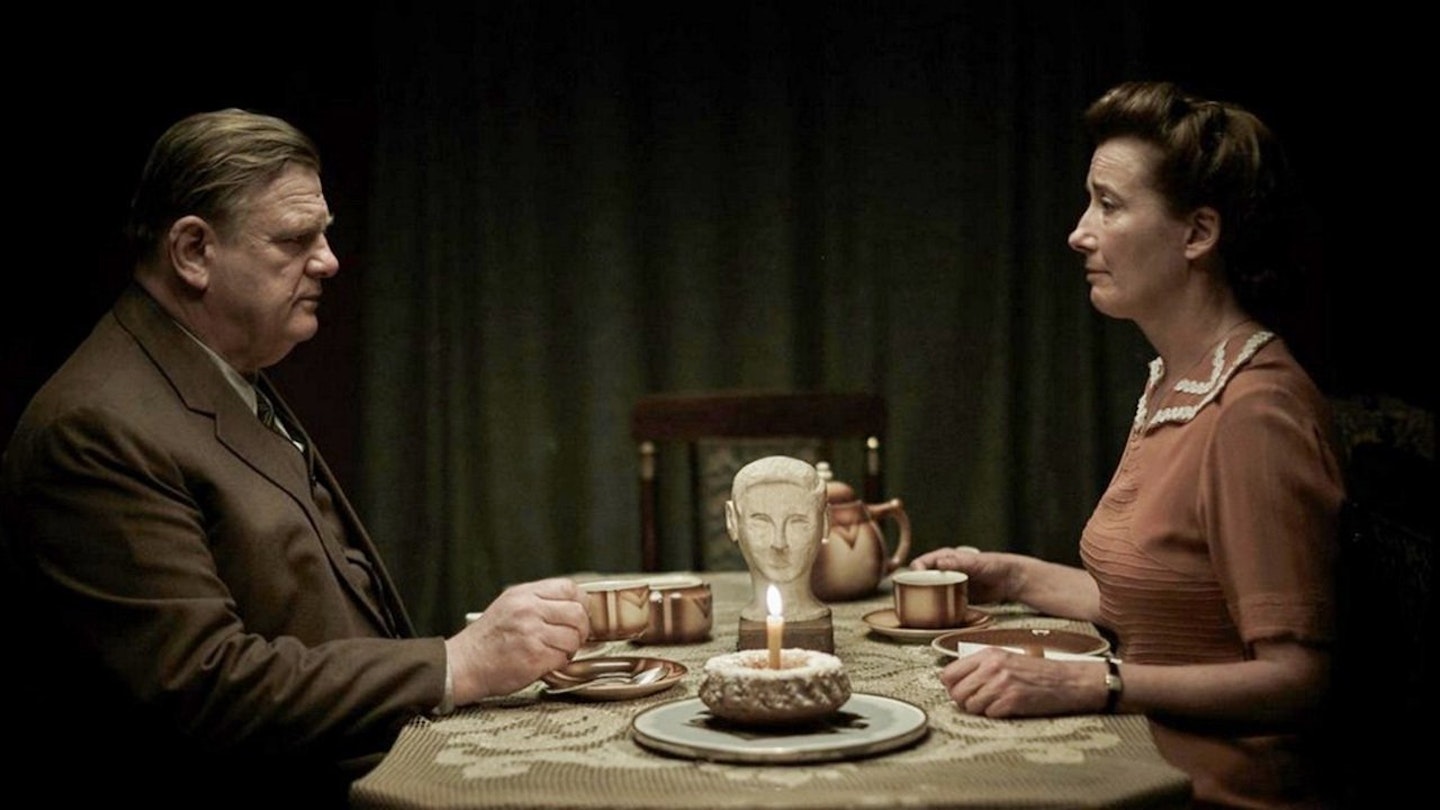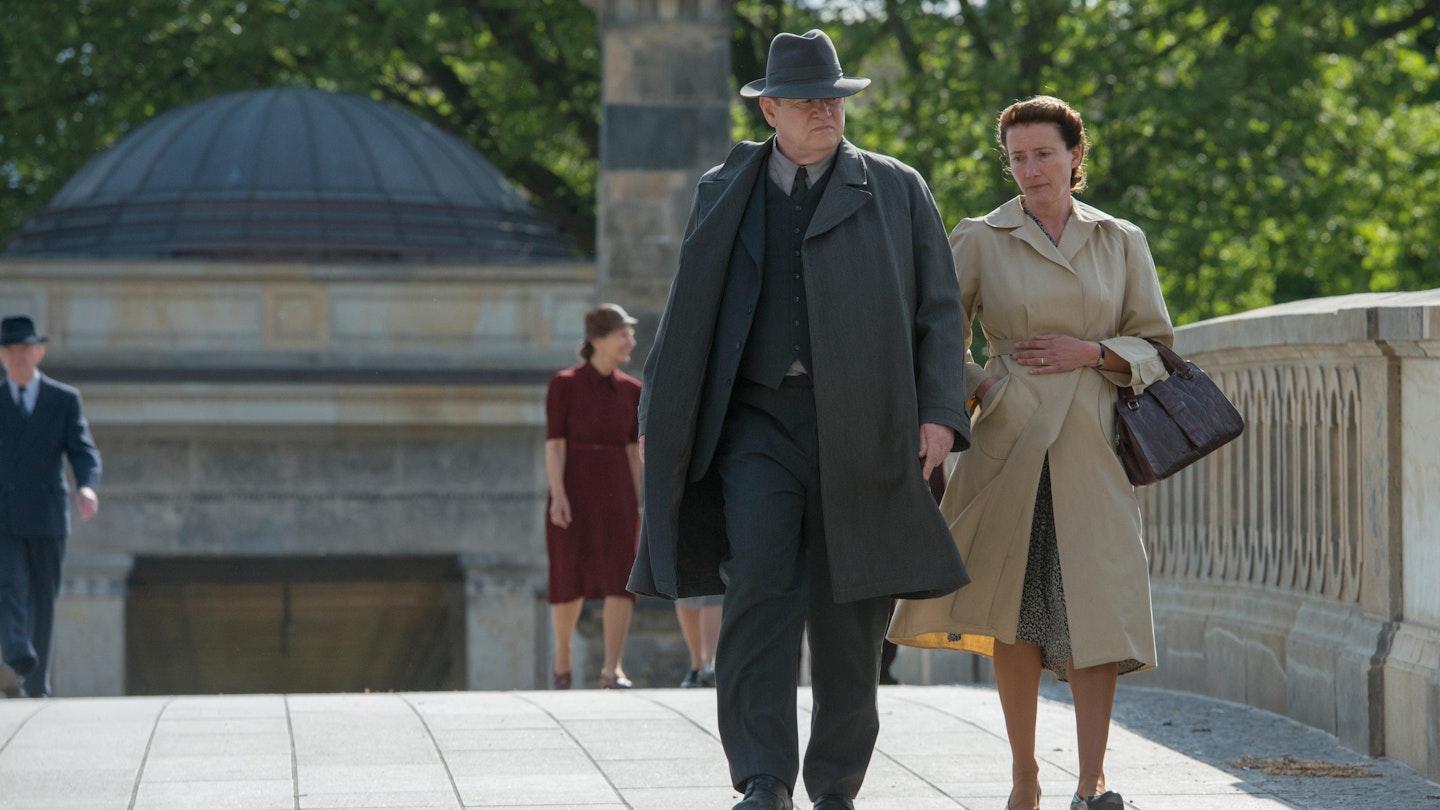Based on Hans Fallada’s 1947 novel Every Man Dies Alone, Alone In Berlin is an ode to microscopic acts of rebellion. The act of secretly leaving postcards carrying pithy messages of resistance against Hitler’s regime is the kind of whimsical opposition Amélie Poulain would carry out if she lived in ’40s Berlin. A similar small-scale timidity infuses actor-turned-director Vincent Perez’s film: handsomely mounted, well played, it never conjures up the power, suspense and emotional heft demanded by the true-life antecedents and historical upheaval.
Handsomely mounted, well played, it never conjures up the emotional heft demanded by history.
The impeccable craft is apparent from the get-go as a young soldier is hunted down and killed in a strikingly shot sun-dappled forest. In Berlin, factory worker Otto (Gleeson) and reluctant Nazi Women’s League member Anna (Emma Thompson) receive a letter informing them their son has been killed in action. While Anna is instantly devastated, Otto takes longer to process his grief, channelling it into inscribing anti-Nazi aphorisms onto postcards and leaving them in public places to be discovered.
The initial card drop is an elegant, mildly suspenseful sequence, and the stakes get raised with Otto’s increasing desire to stay at the scene to register the effect of his handiwork. It’s a potentially interesting beat, but the film never suggests what these tiny triumphs say about their perpetrators’ psyches.

Intercut with the clandestine card malarkey is Inspector Escherich (Brühl) leading the chase, coming under pressure from the SS for not ending the embarrassment while displaying the mandatory respect for his prey (we know he’s nice as he lets a bird out of a cage). Brühl, sporting an unlikely ’tache, does his best with an under-cooked role but is hampered by lumpen writing (“Rest assured, I always get my man”) and blindingly obvious instincts: because Otto starts to wear the type of white gloves beloved by snooker referees, Escherich deduces he must be getting more professional. Really, d’ya think?
The couple’s grief is conceived as admirably internalised rather than histrionic, so Gleeson and Thompson have to do a lot with silences and body language. If Thompson merely habits a fretful grieving mother, Gleeson illuminates Otto, conveying a man caught between his sadness and his desire to strike back. As their subversion takes off, it also believably rejuvenates the Quangels’ marriage, both actors conveying their new-found warmth without sentiment.
Perez marshals all this with competence, but never anything approaching style. The look, by cinematographer Christophe Beaucarne, is chilly and chocolate box elegiac, the sounds, by composer Alexandre Desplat, equally innocuous, all melancholy strings and pretty piano lines. And this is Alone In Berlin’s biggest stumbling block. In a film about revolution (albeit on a small scale) in the most tumultuous time and place in history, it can’t muster anything approaching fire and intensity.

